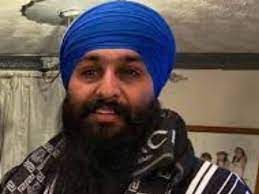An incendiary chapter of Khalistani extremism was abruptly closed today, as Avtar Singh Khanda, one of the leaders of the Khalistan Liberation Force, breathed his last in an upscale private hospital in the United Kingdom. This event sent shockwaves through a faction of Khalistan loyalists worldwide, while barely causing ripples in Punjab, a region that has largely distanced itself from the man and his radical cause.
Khanda was known for his affiliation with Amritpal Singh, a reputed Khalistani extremist, and was primarily renowned for his skills in bomb-making and radicalising young minds against India. His demise, officially attributed to blood cancer, has however, stirred contentious debates with insinuations of foul play emerging from Khalistani corners.
Interestingly, Khanda’s name has been infamously associated with a recent scandal involving the desecration of the Indian tricolour flag. The National Investigation Agency (NIA) of India, which had been actively probing this case, will now have to shift gears following this unexpected development.
Punjab, a state once ablaze with Khalistani ideologies, greeted the news of Khanda’s death with a noticeable lack of remorse, barring a handful of regions such as Tarn Taran, which still bear the traces of bygone separatist loyalties.
As the news spread, Khalsa Aid founder and Khalistani advocate, Ravi Singh, promptly called for a comprehensive investigation and an in-depth coroner’s report into Khanda’s sudden demise. Allegations of poison as the cause of death were also floated by Singh, further thickening the air of mystery shrouding Khanda’s exit.
The specter of the Indian Intelligence and Research and Analysis Wing (R&AW) has also been conjured up by Khalistani groups, who allege these agencies’ involvement in Khanda’s death, a claim devoid of any concrete evidence so far.
Khanda, who made headlines as the chief architect of the attack on the Indian High Commission in London, leaves behind a tainted legacy of violence and rebellion. Regardless of the ambiguity around his death, there is no dispute over the fact that the man who dared to dishonour the Indian flag now stands silenced forever.
The deceased extremist hailed from Moga, where his mother Charanjit Kaur continues to serve as a school teacher. His sister, employed in the health sector, also resides in the UK, and had previously been interrogated by security agencies amidst the investigation of the Amritpal case.
Khanda’s family history is steeped in Khalistani militancy. His father and uncle, both active members of the Khalistan Force, were killed by security forces in separate encounters in the early 1990s.
Moreover, his maternal uncle, Gurjant Singh Budh Singhwala, served as the chief of the Khalistan Liberation Force. This lineage of violent resistance marks a convoluted trail that has now led to Khanda’s untimely death in the UK.





